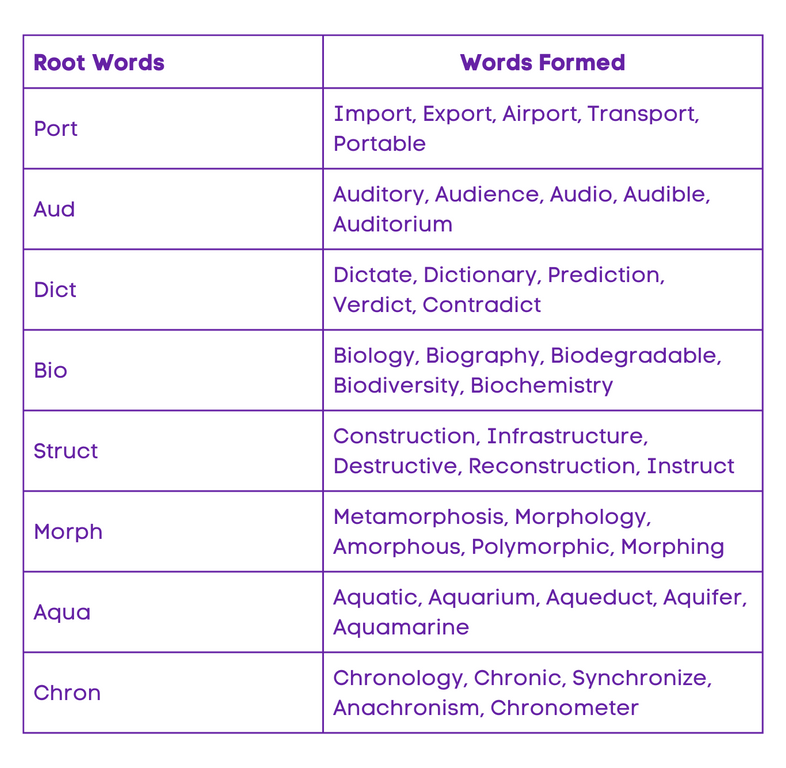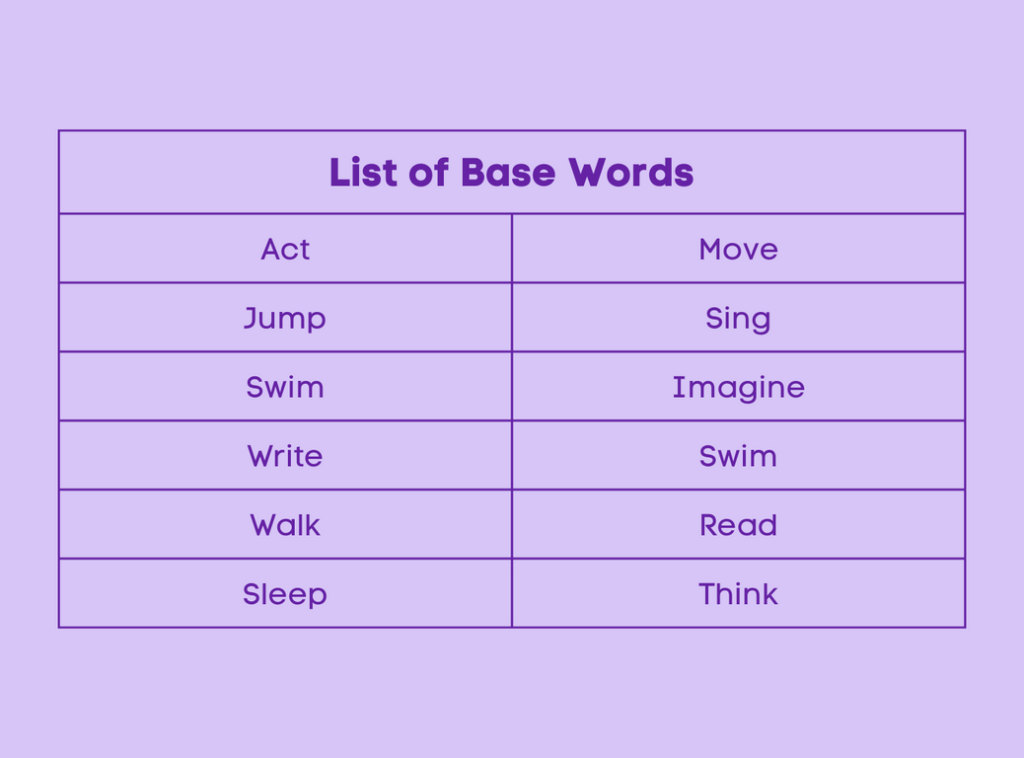What are Root Words? – Meaning with Examples
Table of Contents
Introduction
Root Words
Language is a fascinating and complex system, and at the heart of many words lie root words. Understanding root words is essential for building vocabulary and deciphering the meanings of unfamiliar words. In this article, we will delve into the world of root words, explore their significance, and learn how they differ from base words.
Analogy of Definition
What are Root Words?
A root word is a word in its simplest form, from which other words are formed. It is the foundation of a word and contains its core meaning. Base words, on the other hand, are words to which affixes (prefixes and suffixes) are added to create new words. While root words are the main part of a word, base words can stand alone and have meaning on their own.
Consider the root word “spect,” for instance. Standing alone, it doesn’t form a complete word, but when combined with affixes, it becomes the foundation for various terms. “Respect,” “inspect,” and “introspection” all derive from this root, each conveying a different aspect of observation or examination. However, some root words can be independently understood, but adding prefixes and suffixes to the word helps to create new words. Take the independent root word “graph,” for example. In its solitary form, it functions as a complete word, denoting the act of writing or drawing. When affixed with prefixes or suffixes, it spawns a multitude of related terms. “Autograph,” “telegraph,” and “photograph” all stem from this root, each representing a different aspect of recording or writing.

Method
Root Words vs Base Words
Root words are the primary lexical units from which words are derived, and they cannot be further divided into smaller units. Base words, however, can stand alone and have meaning without any affixes. For example, “act” is a root word, while “action” is a base word formed by adding the suffix “-ion” to the root word.

Root Words – Prefixes and Suffixes
Root words can be combined with prefixes and suffixes to create new words. For example, the root word “act” can be combined with the prefix “re-” to form the word “react,” or with the suffix “-ion” to form the word “action.”
Through the strategic addition of these affixes, both the significance of the root and its grammatical function can undergo transformation.
Consider the root word “cycle,” for instance. When paired with the prefix “re-“, it forms the word “recycle,” indicating the repetition or renewal of a process. Conversely, attaching the suffix “-ing” to “cycle” yields “cycling,” altering its function from a noun to a gerund, indicating the action of riding a bicycle.
Furthermore, prefixes such as “pre-” or “post-” can denote events occurring before or after, respectively, modifying the meaning of the root word. For example, “preheat” signifies heating before the main process, while “postpone” denotes delaying an event until after its scheduled time.
Similarly, suffixes like “-able” or “-ible” can transform a root word into an adjective, indicating the possibility or capability of something. For instance, “comfort” becomes “comfortable,” signifying the ability to provide comfort.
Examples
Example 1: Tele
Telephone
Television
Telegraph
Telescope
Teleport
Example 2: Using prefixes and suffixes
Root word: “act”
With the suffix “-ion”: “action” (noun) – the process or result of doing something.
With the prefix “re-“: “react” (verb) – to respond or behave in response to something.
With the prefix “en-“: “enact” (verb) – to make into law or put into action.
Root word: “ceive”
With the prefix “re-“: “receive” (verb) – to accept or take in something that is given.
With the suffix “-able”: “receivable” (adjective) – able to be received or accepted.
With the suffix “-er”: “receiver” (noun) – a person or thing that receives something.
Quiz
Tips and Tricks
1. Understanding Prefixes and Suffixes
Tip: Prefixes are added to the beginning of a word, while suffixes are added to the end. Understanding their meanings can help in deciphering the meanings of unfamiliar words.
2. Identifying Base Words
Tip: Base words are the foundation of a word and can stand alone. Identifying the base word in a word can help in understanding its core meaning.
3. Building Vocabulary
Tip: Learning root words and their meanings can help in building a strong vocabulary and understanding the origins of words.
4. Exploring Word Families
Tip: Root words form the basis of word families, where related words are derived from the same root.
5. Practicing Word Analysis
Tip: Analyzing words by breaking them down into root words, prefixes, and suffixes can enhance language skills and comprehension.
Real life application
Story: “The Language Adventure of Lily and Max”
Lily and Max were two curious explorers who embarked on a language adventure to uncover the secrets of words and their origins.
Adventure 1: The Mystery of “Un-“
As they journeyed through the forest, they encountered words with the prefix “un-,” such as “unhappy,” “unfair,” and “uncover.” They realized that “un-” added to root words changed the meaning to indicate negation or reversal.
Adventure 2: The Quest for Base Words
In their quest, Lily and Max encountered words like “happiness,” “playful,” and “beautiful.” They identified the base words “happy,” “play,” and “beauty” within these words, understanding that base words form the core of many words.
Adventure 3: Exploring Word Families
As they delved deeper, Lily and Max discovered word families derived from root words, such as “act,” “action,” “react,” and “actor.” They marveled at how a single root word could give rise to a variety of related words.
FAQ's
Like? Share it with your friends
